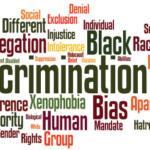(Reuters Health)—Researchers who examined implicit and explicit gender biases in the U.S. medical community found professionals of both genders are more likely to associate the word career with men and the word family with women.
And U.S. surgeons broadly see surgery as a man’s career and family medicine as a woman’s field, the researchers also found.
It’s important to be aware of such stereotyping and gender biases among doctors and other medical professionals, to minimize the potential effect, the researchers say.
Dr. Arghavan Salles and colleagues analyzed responses collected over a decade from 43,000 healthcare professionals who took a “gender-career” association test, a common tool used to measure unconscious and conscious biases that influence interactions with others.
Half of the professionals were over age 32. Although roughly four out of five were women, overall the responses showed conscious and unconscious biases associating men with career and women with family,” Dr. Salles’ team found.
Next, the researchers recruited 131 doctors attending a surgeons’ meeting in 2017 to take a gender-specialty test that assessed biases related to the medical specialties of surgery and family medicine. In this group, half the participants were over age 42 and 35% were women.
Both male and female surgeons held implicit and explicit biases associating men with surgery and women with family medicine, the test showed.
However in both tests, women were less likely than men to explicitly make these associations, the authors reported July 5 online in JAMA Network Open.1
Dr. Salles, herself a surgeon, says the study came about because she was interested in collecting preliminary data on the extent of gender bias in healthcare.
“I’d seen a lot of the ways in which women are treated differently from men, both when I was a resident, and as a faculty member,” she tells Reuters Health in a phone call.
“For years people have said, ‘Well, we just haven’t had enough women going into medicine, so we just need to wait a while and then we’ll see that those numbers will go up,'” says Dr. Salles, who was at Washington University in St Louis when she worked on the study and hasn’t yet started her new position.
But, she adds, “Women have been more than 45% of every entering class across this country since the late 1990’s … and yet only 16% of deans of medical schools are women, so there’s something else going on there.”



